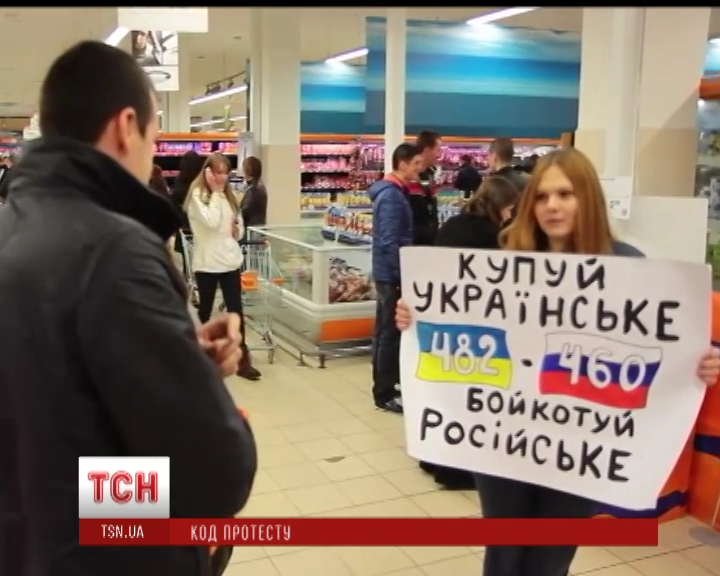Ukrainians have been boycotting Russian goods for half a year now and support for the boycott is expected to grow, reports TSN, September 21.
The active phase of the Ukrainian boycott of Russian goods began after the annexation of Crimea. Appeals on the internet generated multiple flash mobs. In supermarkets, activists with posters stating that “Russian goods kill” pretended to be dead. They also blocked Russian gas stations. At present, 50% of Ukrainian say they are boycotting Russian products. Pollsters believe the number of boycott participants will continue to grow.
The six months of the boycott are already having results. The sale of Russian products has dropped several times. Russian food production alone has lost some US $100 million. The sale of Russian clothing has fallen by 70%. For a long time now, Russian cars are not a desirable product in Ukraine. Now Ukrainians are also rejecting Russian gas.
Because of the boycott, Lukoil, Russia’s largest gas station chain in Ukraine, has had to put all of its Ukrainian assets up for sale. They are being sold to an Austrian company, even though analysts suspect the deal is fictitious and designed to mislead Ukrainians. Similarly, Russian producers are changing product bar codes — from Russian to Ukrainian. They are also lowering prices to make their products at least a kopiyka (penny) cheaper than the Ukrainian ones. However, experts point out that for Russia’s economy as a whole, the Ukrainian boycott is hardly noticeable.
“Russia’s total food product exports represent some $400 million. Russian exports overall, based on last year’s numbers, stood at about $570 billion. For Russia, hydrocarbons are more fundamental — oil, gas, coal,” one analyst points out.
“Those boycotting Russian products say they are not trying to destroy Russia’s economy. What concerns them is the thought that (the sale of the products) is helping to fund Russia’s war in Ukraine. They say that those who buy Russian products are automatically becoming sponsors of this war.





